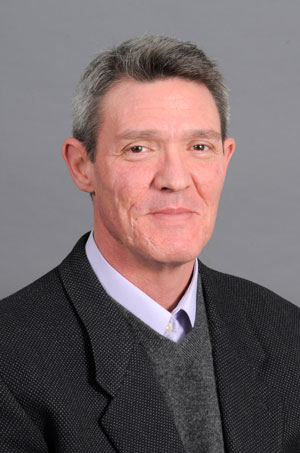Faculty Profile
Jorge Sagastume
Professor of Spanish (2003)Contact Information
Bosler Hall
717-245-1722
https://the-pasticheur.com/
Bio
Jorge is Professor of Spanish and Portuguese at Dickinson College. He holds a Ph.D. from Vanderbilt University and specializes in contemporary Argentine literature, continental philosophy, literary theory, and translation studies. His research centers on the intersection of literature and ethics. Jorge is Editor-in-Chief of The Pasticheur: Literature, Art & Ideas, an academic peer-reviewed journal featuring international artists and scholars. He previously founded Sirena: Poetry, Art and Criticism (Johns Hopkins University Press, 2004-2010), which received recognition in The Chronicle of Higher Education and secured grants from cultural ministries in Ireland, Germany, and the Netherlands. At Dickinson, he teaches courses in Spanish language, Hispanic literature, creative writing, and translation. He has directed study abroad programs in Malaga, Queretaro, and Buenos Aires, and co-founded the Dickinson in South America program. He also writes fiction and poetry in both Spanish and English.
Education
- B.A., University of Utah, 1997
- M.A., Vanderbilt University, 1998
- Ph.D., 2002
2025-2026 Academic Year
Fall 2025
LALC 239 Span for the Health Profession
Cross-listed with SPAN 239-01.
SPAN 239 Span for the Health Profession
Cross-listed with LALC 239-01.
SPAN 299 Read & Think About Texts
This course introduces students to techniques for reading and writing memoirs, creative nonfiction, and fiction, while also exploring the art of translation. Through these forms, students will engage with literary creation and analysis, gaining a deeper understanding of both the craft of writing and the texts they encounter in literary and cultural studies. The course is designed to help students develop skills that will enable them to navigate creative writing, literary criticism, or both.
SPAN 500 Independent Study
Spring 2026
SPAN 231 Spanish Composition
This course introduces students to the fundamentals of narrative craft in Spanish through the study and practice of short fiction and creative nonfiction by Spanish American writers. How do authors construct voice, structure, and perspective? What is the relationship between truth and storytelling in fiction and personal essays? Through readings from Cortázar, Rulfo, García Márquez, Poniatowska, Ampuero, Zambra, and others, students will analyze diverse narrative techniques while developing their writing in Spanish. Weekly assignments will focus on sensory detail, character development, dialogue, structure, and narrative tension, culminating in a final revised story or essay in Spanish. Designed as a preparatory writing course, this class will equip students with the tools to read and write with greater confidence and a deeper understanding of narrative craft in Spanish.
LALC 239 Span for the Health Profession
Cross-listed with SPAN 239-01.
SPAN 239 Span for the Health Profession
Cross-listed with LALC 239-01.
SPAN 299 Read & Think About Texts
The goal of this course is to introduce students to techniques and/or approaches to read and interpret a variety of texts (literature, film, art, photography, music, etc.), while developing the necessary skills in the field to examine discourses, analyze arguments, and construct and defend arguments of their own, orally and in writing. Depending on the professor, this introduction to reading and analyzing different texts may focus on historical, social, cultural, political, methodological, and/or aesthetic contexts, through an interdisciplinary approach. Prerequisite: 231.
LALC 300 Unstable Realities
Cross-listed with SPAN 380-01. This course examines the shifting boundaries between truth and fiction in Argentine short literature from the 20th and 21st centuries. Through the works of Borges, Cortázar, Bioy Casares, Schweblin, Enriquez, Saer, and others, we will explore how authors manipulate narrative structure, perception, memory, and historical discourse to question the nature of reality. How do stories construct or distort truth? What happens when fiction becomes more "real" than reality itself? Assignments will include critical essays, philosophical reflections, and creative exercises, encouraging students to engage analytically and imaginatively with these texts.
SPAN 380 Unstable Realities
Cross-listed with LALC 300-02. This course examines the shifting boundaries between truth and fiction in Argentine short literature from the 20th and 21st centuries. Through the works of Borges, Cortázar, Bioy Casares, Schweblin, Enriquez, Saer, and others, we will explore how authors manipulate narrative structure, perception, memory, and historical discourse to question the nature of reality. How do stories construct or distort truth? What happens when fiction becomes more "real" than reality itself? Assignments will include critical essays, philosophical reflections, and creative exercises, encouraging students to engage analytically and imaginatively with these texts.
SPAN 500 Independent Study
